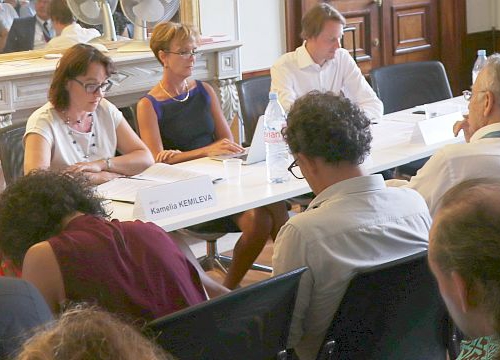Experts Address the legal Consequences of the United States' withdrawal from the UN Human Rights Council


Geneva Academy
10 July 2018
In a note verbale, the United States (US) informed the President of the UN Human Rights Council (HRC) on 20 of June 2018 that they have ‘resigned (their) membership in the Human Rights Council, effective at 1700 Eastern Daylight Time, June 19, 2018’ and that ‘the United States will not participate further in the June HRC session or future sessions and will not serve out the remainder of its term’. Upon receipt of the formal notification, the US ceased to be a member. As from that date onwards, they were considered an Observer State to the HRC.
In a debate, the Geneva Academy introduced a legal discussion on the US’ decision to leave the HRC. Experts and participants discussed the legal consequences of this withdrawal, its impact on the functioning and credibility of the HRC, as well as the extent will the decision affect US’ collaboration with UN Special Procedures and the Universal Periodic Review. They concluded that the US might come back any time through new elections, although the question about their human rights commitments remains open. They also underlined that US' engagement with other mechanisms like UN Special Procedures or the Universal Periodic Review remains open.
Video
The United States Withdrawal from the Human Rights Council
Panelists discussed the legal consequences of the US' withdrawal from the UN Human Rights Council for the functioning and credibility of this major human rights body, and for the promotion and protection of human rights. They also addressed the extent to which this decision will affect US’ collaboration with UN Special Procedures and the Universal Periodic Review, as well as the impact on the UN and multilateral diplomacy.









